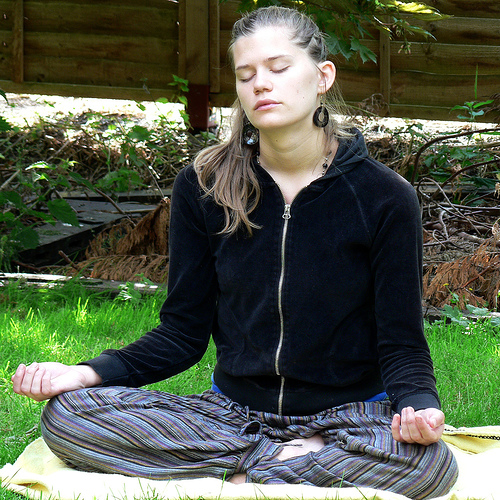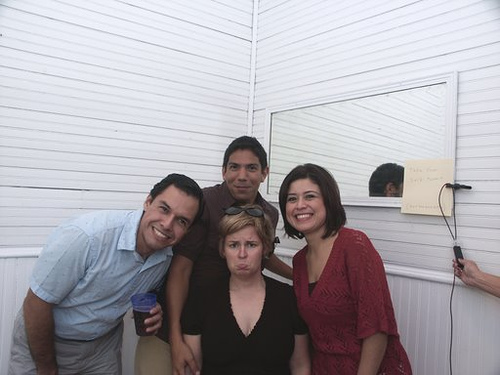
Years ago I read a book that advised going on a “news fast”-that is, not watching, listening to, or reading the news for at least a week. The idea seemed strange to me: I was listening to the news in my car every day on the way into work and back. If I didn’t keep up with the news, wouldn’t I be uninformed? Wouldn’t I miss important things?
Well, maybe. I mean, if I were an investment counselor, I’d need to keep up with financial news. Almost everyone can use weather reports-though we can get that online without going near any other kinds of news. I certainly need to know something about what’s been going on in politics sooner or later if I’m going to vote responsibly. On a day-to-day basis, though, is news actually doing me any good?
News and stress
I could phrase this question another way: is what I get from keeping up with the news worth the stress it causes me?
Because it’s definitely stressful. I listened to NPR while in the car this morning and ended up turning it off after 20 minutes, because it had already managed to offer me stress-producing material about 1) biased journalism, 2) world overpopulation, 3) declining birth rates (notice how this is in direct conflict with #2 and yet each offers things to worry about), 4) drug shortages, and 5) invasive plant species.
I’m not advocating not knowing about these things. The dangers of overpopulation should (if you ask me) figure into any family planning discussion. There are practices I can avoid, like bringing unchecked fill onto my property, that can help limit the spread of invasive species. Having a sense of how responsible my sources of information are helps me take their statements in a more well-considered light.
What’s the news for, anyway?
Yet on the whole, the news tends to be filled with things to worry about, very few of which we can do much about directly unless we choose to make it a key personal mission. There are some positive stories, but they’re rare. You’ve probably heard the saying “If it bleeds, it leads”: people pay more attention to the news-watch more, listen more, and read more-if something bad is happening. Imagine a newspaper with a huge front page headline: “Everything is fine; not much to worry about!” It might have novelty value, but if it began to happen regularly, people might well stop buying newspapers.
When we listen to something negative on the news, we have three choices: we can do something about it right away, we can ignore it completely, or we can keep it in mind. Since we can rarely do anything about corruption in Afghanistan or declining salmon populations right away, and since ignoring is difficult and seems counter-intuitive when we’ve gone out of our way to get the news in the first place, we do a lot of just keeping things in mind. Does this make us better people? Does it help us make better decisions?
For that matter, are we even necessarily better informed? The news often emphasizes the unusual, the shocking, or the disturbing, making the world seem more extreme and upsetting than it actually is. “Two people fall in love, have minimal relationship problems, and live happily together into old age” isn’t usually news, but knowing that things like that happen is crucial in terms of how we experience our lives. News tends to skew the way we view the world. It’s depressing. It’s stressful.
Less news is good news
So what am I advocating here? Just that if you’re in the habit of listening to, watching, or reading the news every day, you might want to try taking a vacation for a while. Also, when you come back from that vacation, you might consider the possibility of limiting your news consumption on a regular basis.
I’d suggest two weeks. One week probably isn’t long enough to completely feel the effects, and anything longer runs the risk of making a person feel so out of touch the whole thing might backfire.
But old habits are hard to shake off, so I also recommend substitute behaviors.
If you read your news, whether on paper or online, consider introducing more enjoyable fiction and blogs, magazines, or books on topics you care about into your literary diet.
If you tend to listen on the radio, substitute music (which can be a highly effective mood changer), audiobooks, or just thinking about your life, the things that are important to you, and what makes you happy (see Getting Past Our Own Uncomfortable Silences). If you own a Kindle, you can have it read some books aloud to you (depending on the publisher’s settings) by pressing Shift+Sym and using space bar to pause/play. I plug my Kindle into my car’s stereo system and “read” articles, blog posts, and books this way. If you enjoy singing, doing more of that-with or without the radio-is another way to boost mood.
If your news mainly comes from the television, consider watching less television and spending the time instead with family or friends, reading or listening to music, or engaging in projects that leave you with a sense of satisfaction and meaning.
I’m not sure there is a perfect balance of taking in the news and staying clear of it. Even though news is often stressful, it’s occasionally enlightening or uplifting, and even when it’s stressful, sometimes that stress has a purpose (see The Benefits of Feeling Bad). Still, getting large amounts of news on a regular basis seems as though it would enough to increase anyone’s stress levels. If you’re a daily news consumer, what’s it doing to yours?
Photo by matsimpsk











